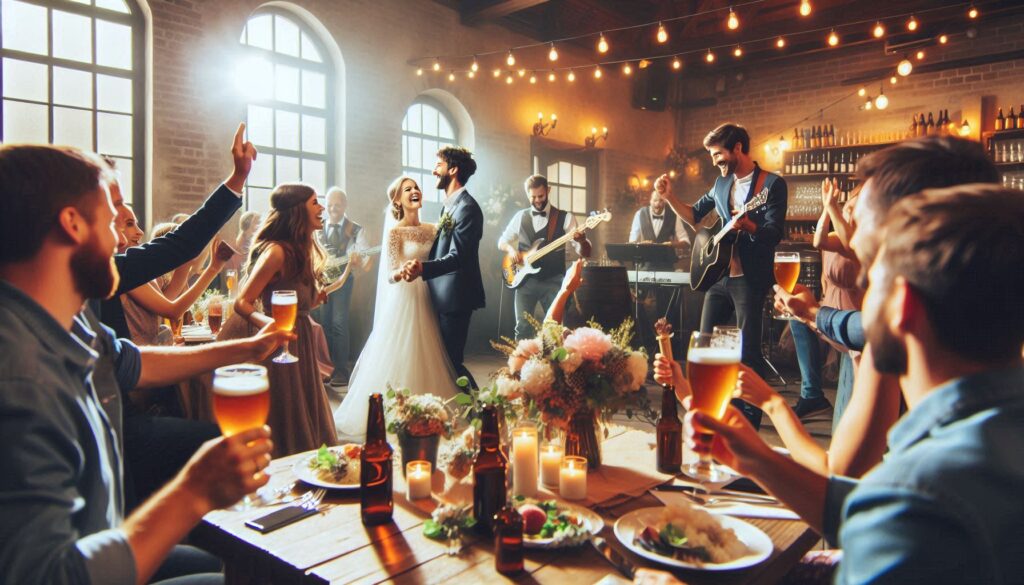Event Space Rental Arrangements Make Florida Tasting Rooms More Versatile

Throwing holiday parties or wedding receptions at a brewery, winery, or craft distillery in Florida can be a fantastic way to draw in guests and showcase your local drinks. But sometimes, event planners want more variety than what’s made on-site or what you’re allowed to sell in the taproom or tasting room. For example, someone organizing a holiday party at a brewery might want to serve cocktails with distilled spirits, or a wedding at a distillery might need beer and wine along with the spirits.
So, how can Florida’s taprooms and tasting rooms host these events while sticking to their alcohol license rules?
How to Use Event Space Rental Arrangements
You can handle this by renting out your space for events. Instead of running the events yourself, you let other folks organize and host them in your taproom or tasting room. Sure, there are some trade-offs compared to throwing the event yourself and serving the drinks directly. But if the event organizers need alcohol that you can’t legally supply, renting out your space is a worthy option.
To make the event space rental arrangement work while complying with their licensing requirements, operators must observe the following requirements.
Guests at the event can have not access to manufacturing operations or tax unpaid alcohol.
Federal and state alcohol regulators usually worry most about protecting and collecting excise taxes. Letting a bunch of random people into the production area can be a big no-no unless you take steps to make sure untaxed alcohol stays untouched. This goes for alcohol that’s still fermenting, aging in barrels, or packed and awaiting tax payment. Licensed manufacturers need to keep their production secure and be ready to prove it to regulators.
The operator cannot make retail sales of alcohol in the event space during the event.
The main challenge is that during the event, the taproom or tasting room operator can’t make retail alcohol sales within the event space. This is because they aren’t in control of the space at that time, so their state license for retail sales isn’t valid. Since the operator is running a business and probably can’t afford to just shut down for the evening without some form of payment, they’ll need to find other ways to get compensated.
The operator can charge an event space rental fee, which the event organizer pays for using the space. This might be a flat rate or could include separate charges for things like furniture, equipment, and cleaning fees. They can also add a service fee for their employees’ services during the event, such as food and alcohol service or bartending. If the operator has a restaurant license, they can also charge for providing food at the event.
However, the operator can’t charge based on the amount of alcohol sold, meaning no per-drink fees or cash bar operations. But they can sell bulk amounts of kegged, bottled, or canned alcohol to the event organizer (or caterer) for use during the event. The operator can even take back any unused alcohol after the event and offer a refund or credit.
The event organizer must operate an open bar unless it engages a license alcohol caterer to operate a cash bar.
The event planner can’t sell alcohol at the event unless they have an alcohol catering license. To sell drinks, you need a retail license. In Florida, only an alcohol catering license lets you sell alcohol away from a designated licensed location. So, without a licensed alcohol caterer, the event organizer can only offer free alcoholic drinks to guests. If they want to have a cash bar where guests buy their drinks, it has to be run by a licensed alcohol caterer.
The operator should notify the ABT in advance, including the date and times of the event.
The Florida Division of Alcoholic Beverages and Tobacco (ABT) oversees the sale and service of alcohol in Florida. If there’s a change in how you’re selling or serving alcohol at your licensed spot, ABT needs to know. Letting them know ahead of time is the best way to avoid any events being interrupted by their enforcement because they weren’t informed.
Have an Written Agreement and Check Your Insurance
To ensure everyone is on the same page, it’s best to have a written rental agreement for any event space, signed by both the taproom or tasting room operator and the event organizer. This agreement should be included in the notice given to the ABT to show that everyone understands their responsibilities and follows Florida’s alcohol laws and regulations.
Before you start renting out your event space, check with your commercial liability insurance agent. Find out how these rentals might affect your insurance. How would your insurance handle a claim if an attendee sues you, even if you weren’t involved in the event itself? Also, ask if you need extra coverage or if the event organizers should provide additional insurance.
Do you have any questions about event space rental arrangements? Contact us to schedule a consultation with a beverage attorney.
Because we’re attorneys: Disclaimer. Originally posted 09/15/2024.

